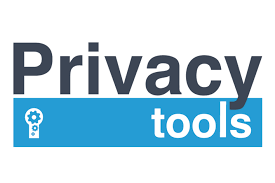The Privacy Tools That Actually Keep Your Data Safe
We live in a time where nearly everything we do—shopping, chatting, working, or even just browsing—leaves behind a trail. A digital one. And while some folks shrug it off, thinking privacy is a lost cause, others are quietly turning to tools that actually help them stay in control. You don’t need to go full off-grid. But if you value your privacy even a little, you should know which tools are actually worth using.

Here’s a look at the privacy tools that go beyond the marketing hype and genuinely protect your data.
1. VPNs: The Digital Disguise
First things first, Virtual Private Networks (VPNs). They mask your IP address, encrypt your connection, and stop random networks from sniffing around in your data. I work in cafes sometimes, and a VPN is my first layer of armor.
What works:
- Mullvad – No email needed. You get a random account number and that’s it. Pure privacy.
- ProtonVPN – Based in Switzerland with no-logs policy and a free tier that’s actually usable.
- IVPN – Transparent and minimal. Feels like it was built for people, not profit.
Avoid: Free VPNs. If it doesn’t cost money, it probably costs you privacy.
2. Secure Browsers
What it does: Unlike mainstream browsers, privacy-first ones block trackers and ads, don’t build detailed profiles, and don’t collect your browsing history.
Why it matters: Your browser is like your front door to the internet. Chrome, for example, is great at syncing your stuff—but it’s also tied to Google, which thrives on data. A secure browser gives you the same access without leaking your habits.
Solid picks:
- Brave – Built on Chromium but blocks ads, scripts, and trackers by default. Also includes Tor browsing.
- Firefox – Customizable and backed by Mozilla, a nonprofit. Their Enhanced Tracking Protection is solid.
- LibreWolf – A hardened version of Firefox with no telemetry.
Add-ons that help:
- uBlock Origin – For blocking ads and scripts.
- Privacy Badger – Created by the EFF, it blocks trackers that follow you around.
- HTTPS Everywhere – Forces websites to use secure connections.
3. Encrypted Messaging Apps
What it does: Encrypts messages so that only you and the recipient can read them. No one in between—not even the app provider—can see the content.
Why it matters: Text messages and even standard chats on popular platforms can be read or stored. If a government or hacker wants access, it’s not always that hard.
Solid picks:
- Signal – Open-source, end-to-end encryption, minimal metadata. You can set messages to disappear.
- Session – No phone number needed. Completely anonymous and decentralized.
- Threema – Based in Switzerland, privacy-forward, and doesn’t require a phone number.
Avoid: Apps like WhatsApp may use encryption, but they still collect metadata and are owned by Meta. Not ideal for privacy.
4. Password Managers
What it does: Stores and encrypts your passwords in one place, letting you generate strong ones and autofill them securely.
Why it matters: Reusing passwords is risky. Keeping them in your notes app? Worse. A proper manager makes it easy to stay safe without trying to remember everything.
Solid picks:
- Bitwarden – Open-source, affordable, with browser extensions and mobile apps.
- 1Password – Strong security and easy to use. Slightly more expensive but solid.
- KeePassXC – Offline, open-source, for those who want full control.
Tip: Always use two-factor authentication (2FA) along with your manager for extra safety.
5. Private Email Services
What it does: Offers encrypted email and better control over data storage, tracking, and advertising.
Why it matters: Free email from big companies often comes with a price—your data. They scan your inbox to target you with ads or build a profile. Private services flip that model.
Solid picks:
- ProtonMail – End-to-end encryption, no ads, based in Switzerland.
- Tutanota – Germany-based, privacy-focused, and encrypts subject lines too.
- Mailbox.org – Another strong German provider, with business-friendly features.
Watch out for: Services that say “secure” but don’t offer true end-to-end encryption or are owned by ad-driven companies.
6. Private Search Engines
What it does: Delivers search results without tracking you, storing your queries, or showing personalized ads.
Why it matters: Google knows what you search, when, how often, and what you click next. That adds up fast. A private search engine lets you browse without feeling like someone’s watching over your shoulder.
Solid picks:
- DuckDuckGo – Doesn’t track you, and results are surprisingly good for everyday use.
- Startpage – Uses Google results but strips out trackers and identifiers.
- Mojeek – Builds its own index and respects privacy fully.
7. Secure Cloud Storage
What it does: Keeps your files safe and encrypted, so only you can access them.
Why it matters: Most cloud services scan your files, use your data for advertising, or don’t offer real encryption. That’s risky for personal docs, health info, or anything you wouldn’t want someone else peeking at.
Solid picks:
- Tresorit – Zero-knowledge encryption, based in Switzerland.
- Sync.com – Canada-based, privacy-respecting, and good for teams.
- Proton Drive – End-to-end encryption, still growing, but backed by a strong track record.
8. Bonus: Little Habits That Go a Long Way
Even with the best tools, habits matter. Try this:
- Clear cookies and site data often.
- Use different browsers for different tasks.
- Turn off location sharing when you don’t need it.
- Say no to unnecessary permissions on your phone.
- Don’t use your real birthday or full name unless required.
Final Word
Privacy doesn’t mean hiding from the world. It means having control over what you share—and with whom. You don’t need to switch everything at once. Start with one tool. Maybe a browser or a better messaging app. Let it become part of your routine.
The truth is, the more people care about their privacy, the more companies will be forced to respect it. Every time you pick a tool that protects instead of exploits, you’re making a choice for yourself—and setting an example for others.
Small steps. Big difference.




